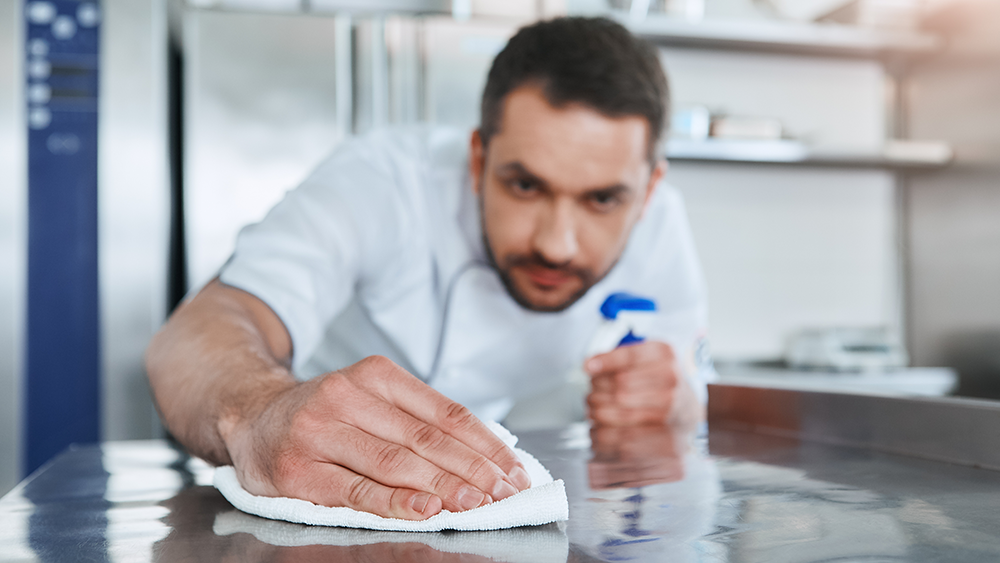By Briana Hilton, Contributor
As many as 25 people who visited a Subway location in Idaho between March 16 and March 19 have reported varying symptoms of food poisoning, according to Southwest District Health (SWDH), and one positive norovirus case has been identified thus far.
One of the most common causes of norovirus -- which can cause a number of symptoms such as nausea, vomiting and diarrhea -- is consuming contaminated food. Although food poisoning cases are usually mild and easily treatable, it can do immense damage to a restaurant’s reputation – just ask Chipotle.
Thankfully, adhering to basic food hygiene rules at all times can help reduce the risk of a norovirus outbreak considerably.
If You Drop It, Discard It
We have all heard about the ‘five second rule’, which allows you to pick up and eat anything that has fallen to the floor – as long as you do it within five seconds. And while perhaps an amusing jest with friends in your own home, this somewhat absurd “rule” can have dire consequences, especially in a restaurant setting.
Researchers at Rutgers University recently debunked the myth that germ transfer cannot take place in under five seconds. Although more bacteria is collected the longer the food item lies on the floor, bacteria transfer occurred in every test in a run of 2,560 experiments. If food is dropped, you need to cut your losses and discard the contaminated food, or risk your patrons falling ill and your establishment’s reputation taking a knock.
Disinfect Your Kitchen Regularly
The importance of disinfecting work surfaces and kitchen equipment on a regular basis to prevent contamination cannot be reiterated enough. While there are a number of quality disinfectants available on the market that can keep a restaurant hygienic on a regular day, extra care needs to be taken when dealing with the norovirus.
If you have a suspected case of norovirus in your establishment, it is essential to use a disinfectant that is registered as being effective against the virus by the Environmental Protection Agency (EPA). Alternatively, you can also make use of a bleach solution that consists of up to 25 tablespoons of household bleach to a gallon of water. All surfaces, including door handles and faucets, should be wiped down at least twice a day.
Encourage Proper Personal Hygiene
All your efforts to keep your restaurant norovirus-free will be in vain if your staff do not practice good personal hygiene. It is essential that everyone, from your kitchen staff to your servers, wash their hands regularly with disinfecting soap. Hands should always be dried in a hygienic manner, and the use of cloths, towels and items of clothing should be avoided at all times. Any staff member who displays symptoms that can be associated with the norovirus or any other foodborne illness should seek out medical treatment, and should remain at home until all symptoms subside or the green-light is given by their healthcare practitioner.
The norovirus affects millions of Americans. Although it is very contagious, adhering to basic restaurant hygiene protocol can limit its spread considerably.










![The Daily Rail: The most expensive cities (worldwide) to drink a beer [INFOGRAPHIC]](https://images.squarespace-cdn.com/content/v1/56a2785c69a91af45e06a188/1467983954721-9808TACVHL8CT3HIOO7M/Expensive-Beer-Cities.png)

![Best ways to prevent foodborne illness at your restaurant [VIDEO]](https://images.squarespace-cdn.com/content/v1/56a2785c69a91af45e06a188/1466182722119-DAXVO89MWFYGINVX6IVY/Foodborne-Illness-Meat.png)
![Are Paid Sick Leave (PSL) laws good for restaurants? [VIDEO]](https://images.squarespace-cdn.com/content/v1/56a2785c69a91af45e06a188/1465916866892-7CVWKRVYMBXN72Z2BETP/Paid-Sick-Leave-Laws-PSL.png)
